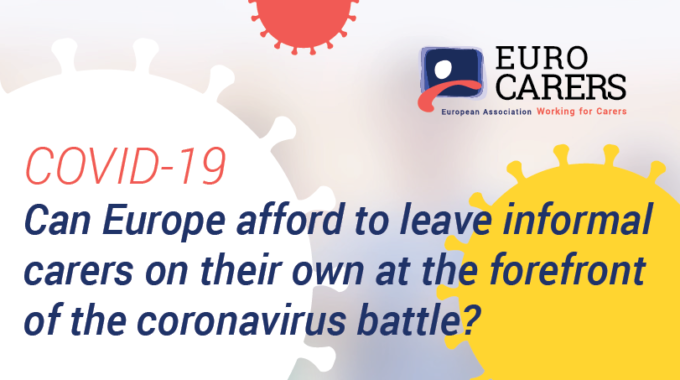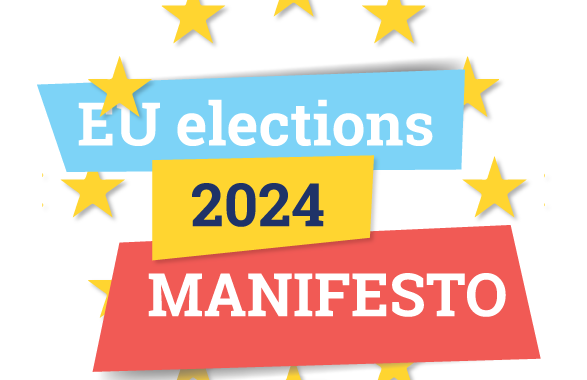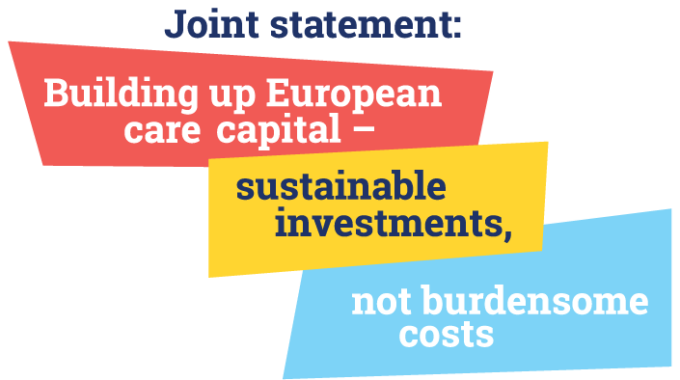
Can Europe afford to leave informal carers on their own at the forefront of the coronavirus battle?
Press release, 24 March 2020 Eurocarers
At the end of last year, Chinese public health authorities reported several cases of acute respiratory syndrome in Wuhan City, China. Scientists soon identified a novel coronavirus as the main causative agent. The disease, now commonly referred to as coronavirus disease 2019 (COVID-19), has quickly become one of the biggest health challenges of our generation.
According to the European Centre for Disease Prevention and Control (ECDC), the risk of severe disease associated with COVID-19 infection in Europe is currently moderate for the general population. Nevertheless, the level of risk increases to ‘high’ when considering older adults and individuals with chronic conditions. The risk of milder disease and its resulting impact on social and work-related activity is also considered high.
As a growing number of governments are developing praiseworthy efforts to control the spread of the virus while ensuring that patients receive the treatment they need, Eurocarers is very concerned about the likely dramatic impact of the epidemic on the already-difficult situation of informal carers across Europe. The prevalence and demographics of both informal care[1] and chronic diseases[2] indeed mean that many informal carers – as the main providers of care to people with chronic conditions or being part of the most-at-risk age group – now find themselves in a particularly vulnerable situation. Furthermore, the strict confinement measures in place across Europe and the risk of healthcare system capacity being exceeded further exacerbate carers’ isolation and deprive them from many of the tools at their disposal to maintain an acceptable balance between their social, professional and caregiving responsibilities.
Against this backdrop, Eurocarers reiterates its call on European governments to address the current critical situation and needs of informal carers. Carers are essential to the sustainability of our care systems and ignoring their situation and needs in the context of the current health crisis would amount to no less than a disaster.
Conscious of its mission and in a modest attempt to address some of the challenges facing informal carers as a result of coronavirus, the Eurocarers secretariat has collected practical tips on its website in order to support informal carers across Europe in these particularly trying times. The information provided stems from our network as well as from international organisations (World Health Organisation, ECDC, etc.)
The Eurocarers information package on coronavirus is available at www.eurocarers.org/covid-19
Eurocarers is the European network representing informal carers and their organisations, irrespective of the particular age or health need of the person they are caring for. Our network currently brings together 70 carers’ organisations as well as relevant research & development organisations from 26 countries. Eurocarers was established by and for its members and works from the ‘bottom up’ to ensure that the voices of carers are heard at local, regional, national and EU levels and that the impact of policy on their daily lives is recognised by both policymakers and politicians.
[2] According to the WHO, two out of three people reaching retirement age will have at least two chronic conditions and chronic conditions currently represent the major share of the burden of disease in Europe and are responsible for 86% of all deaths (CHRODIS)
For more information





